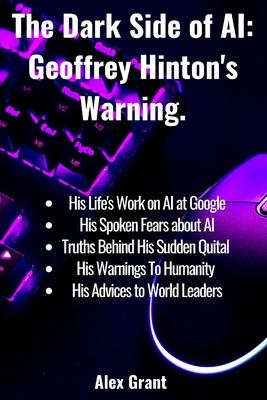
Geoffrey Hinton's prescient vision for responsible AI serves as a guiding beacon in this narrative. As a trailblazer in the AI domain, Hinton's perspective delves into the critical nuances of ensuring that AI development aligns with human values and ethical considerations. His discerning views act as a call to action, urging stakeholders to navigate the evolving landscape with a judicious and responsible approach.
Central to Hinton's discourse is the ethics of autonomous decision-making, a realm where the convergence of AI and human agency poses profound questions. Hinton contends that the key lies in imbuing AI systems with "common sense reasoning." This entails endowing machines with the ability to comprehend context, make informed inferences, and engage in reasoning akin to human thought processes. Such an approach, according to Hinton, elevates AI beyond mere algorithmic execution to a realm where it becomes a collaborative partner in human-like reasoning.
The journey into the dark side of AI would be incomplete without confronting the ever-looming specter of algorithmic bias. Hinton's exploration delves into the intricacies of how algorithms, despite their mathematical precision, can perpetuate biases. His advocacy for "explainable AI" systems becomes a crucial tool in this context, offering users insights into the decision-making processes of autonomous systems. By fostering transparency, Hinton aims to empower users to understand, question, and rectify biases, ensuring that AI systems operate with fairness and accountability.
"The Dark Side of AI" culminates in a riveting exploration of the promises and perils that AI presents for humanity. Hinton's multifaceted vision serves as a compass, guiding readers through the intricate landscapes of ethical considerations, collaborative imperatives, and the looming threats that demand vigilant attention. The narrative transcends a mere cautionary tale, evolving into a manifesto for responsible AI development, urging stakeholders to tread carefully into the future that AI inevitably unfolds.
This book stands as an indispensable read for anyone captivated by the unfolding saga of artificial intelligence. Through Geoffrey Hinton's warnings and visionary insights, readers are equipped with the knowledge to navigate the intricate tapestry of AI's potential dark side. It is an invitation to ponder not just the technological prowess of AI but the ethical and societal implications that demand collective consideration. As we stand at the crossroads of AI's ascent, "The Dark Side of AI" emerges as a guidebook, empowering readers to grapple with the profound questions and responsibilities that accompany the inexorable march of artificial intelligence.
Geoffrey Hinton's prescient vision for responsible AI serves as a guiding beacon in this narrative. As a trailblazer in the AI domain, Hinton's perspective delves into the critical nuances of ensuring that AI development aligns with human values and ethical considerations. His discerning views act as a call to action, urging stakeholders to navigate the evolving landscape with a judicious and responsible approach.
Central to Hinton's discourse is the ethics of autonomous decision-making, a realm where the convergence of AI and human agency poses profound questions. Hinton contends that the key lies in imbuing AI systems with "common sense reasoning." This entails endowing machines with the ability to comprehend context, make informed inferences, and engage in reasoning akin to human thought processes. Such an approach, according to Hinton, elevates AI beyond mere algorithmic execution to a realm where it becomes a collaborative partner in human-like reasoning.
The journey into the dark side of AI would be incomplete without confronting the ever-looming specter of algorithmic bias. Hinton's exploration delves into the intricacies of how algorithms, despite their mathematical precision, can perpetuate biases. His advocacy for "explainable AI" systems becomes a crucial tool in this context, offering users insights into the decision-making processes of autonomous systems. By fostering transparency, Hinton aims to empower users to understand, question, and rectify biases, ensuring that AI systems operate with fairness and accountability.
"The Dark Side of AI" culminates in a riveting exploration of the promises and perils that AI presents for humanity. Hinton's multifaceted vision serves as a compass, guiding readers through the intricate landscapes of ethical considerations, collaborative imperatives, and the looming threats that demand vigilant attention. The narrative transcends a mere cautionary tale, evolving into a manifesto for responsible AI development, urging stakeholders to tread carefully into the future that AI inevitably unfolds.
This book stands as an indispensable read for anyone captivated by the unfolding saga of artificial intelligence. Through Geoffrey Hinton's warnings and visionary insights, readers are equipped with the knowledge to navigate the intricate tapestry of AI's potential dark side. It is an invitation to ponder not just the technological prowess of AI but the ethical and societal implications that demand collective consideration. As we stand at the crossroads of AI's ascent, "The Dark Side of AI" emerges as a guidebook, empowering readers to grapple with the profound questions and responsibilities that accompany the inexorable march of artificial intelligence.
Paperback
$14.99